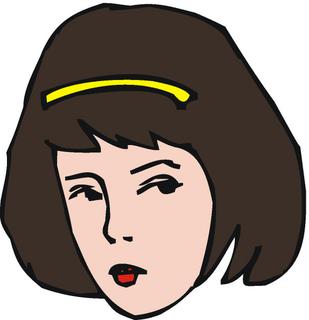THE DEATH & LIFE OF SYLVIA PLATH, by RONALD HAYMAN
Just finished reading the above biog of Sylvia Plath and it was excellent! The author is clearly very fond of Sylvia, who struck me as being a pain on only a couple of occasions. Among the more interesting/trivial facts to emerge:
Attending a discussion in the pub, when one of her lecturers was talking about Shakespeare, she was tempted to ask whether he’d be her father.
She and Ted regularly held séances using a home-made Ouija board. They called up spirits called Colossus and Pan. They contacted Pan most often, believing he could help them fill in coupons for the football pools.
Early in the marriage, Ted created stories for her about Snatchcraftington, a wizard who looked like a stalk of rhubarb.
Her father died during Sylvia’s childhood and her mother was thereafter self-denying in all matters, particularly regarding money. As well as being devastated by the loss of her father, Sylvia was also concerned for her mother’s happiness and hard work. The mother – never particularly happy or relaxed – did not shield her own vulnerability from the young Sylvia. This meant that Sylvia (the elder of two children) was not enabled to feel happy or carefree in this remaining parent’s care. She felt burdened with feelings of responsibility. Thus, the seeds of the adult Sylvia’s neurosis were sewn.
Sylvia documented her life in exhaustive detail from the age of 11, via her diaries.
Ted hypnotised Sylvia during her first labour to help her cope with pain of it. Ted’s second wife, Assia, also committed suicide by gassing herself.
While lying in bed after having her appendix out, she thinks her head, lying between pillow and sheet, is “like an eye between two lids that won’t shut”.
On returning to the house she shared with Ted (he wasn't present), when she knew he was having an affair, she went to Hughes’s desk and scraped it with a knife, skimming off the residue of dandruff, dead skin, fingernail clippings, stray hairs etc. She also took letters and poems from his bin and desk. She then took these to the garden and burnt them. This was a magic ritual she made up after consulting one of Ted’s books on witchcraft.
Just finished reading the above biog of Sylvia Plath and it was excellent! The author is clearly very fond of Sylvia, who struck me as being a pain on only a couple of occasions. Among the more interesting/trivial facts to emerge:
Attending a discussion in the pub, when one of her lecturers was talking about Shakespeare, she was tempted to ask whether he’d be her father.
She and Ted regularly held séances using a home-made Ouija board. They called up spirits called Colossus and Pan. They contacted Pan most often, believing he could help them fill in coupons for the football pools.
Early in the marriage, Ted created stories for her about Snatchcraftington, a wizard who looked like a stalk of rhubarb.
Her father died during Sylvia’s childhood and her mother was thereafter self-denying in all matters, particularly regarding money. As well as being devastated by the loss of her father, Sylvia was also concerned for her mother’s happiness and hard work. The mother – never particularly happy or relaxed – did not shield her own vulnerability from the young Sylvia. This meant that Sylvia (the elder of two children) was not enabled to feel happy or carefree in this remaining parent’s care. She felt burdened with feelings of responsibility. Thus, the seeds of the adult Sylvia’s neurosis were sewn.
Sylvia documented her life in exhaustive detail from the age of 11, via her diaries.
Ted hypnotised Sylvia during her first labour to help her cope with pain of it. Ted’s second wife, Assia, also committed suicide by gassing herself.
While lying in bed after having her appendix out, she thinks her head, lying between pillow and sheet, is “like an eye between two lids that won’t shut”.
On returning to the house she shared with Ted (he wasn't present), when she knew he was having an affair, she went to Hughes’s desk and scraped it with a knife, skimming off the residue of dandruff, dead skin, fingernail clippings, stray hairs etc. She also took letters and poems from his bin and desk. She then took these to the garden and burnt them. This was a magic ritual she made up after consulting one of Ted’s books on witchcraft.

